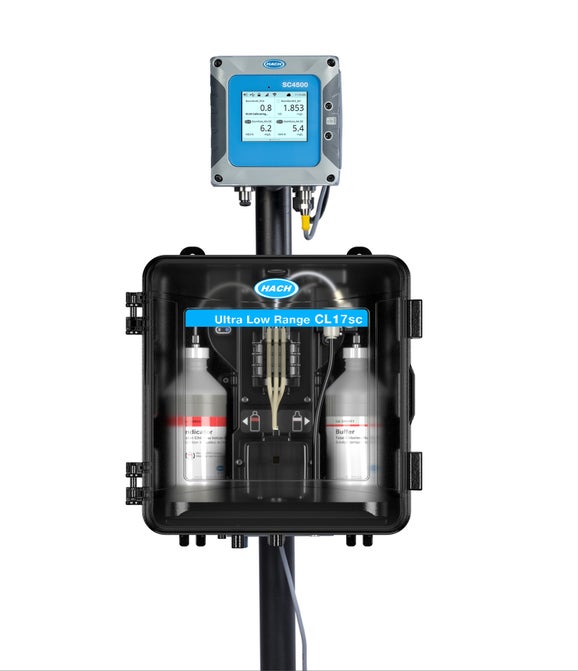Got an interesting email from HACH today. While I know I have no plans to personally or professionally buy this equipment, I thought it would make a nice reminder and give some talking points for everyone.
HACH emailed me a new inline continuous chlorine meter that will detect down to 8ppb (yes ppb, not ppm, so 0.008ppm) for RO units. While the meter itself can be yours for the low low price of only $4,900 - $7,900+ the content posted with the meter is more valuable to the everyday reefer making RO/DI water.
So according to research a 10ppb (0.01ppm) increase in chlorine bleed through can reduce membrane life by up to 25%. I don't know how accurate their testing is, as I don't know the methods, and they are ultimately a manufacturer looking to sell meters/monitors.
Now even without the capability to detect into the ppb range, any noticeable shift in chlorine bleed through to your RO membrane should be adjusted as quickly as possible by replacing a carbon block in order to prolong the life of your RO membrane. Remember a properly maintained membrane should last you 3-5+ years depending on usage. Do yourself and your wallet a favor and monitor your chlorine bleed through. Not only will you save $, but you also save the trouble of opening up the RO housing, and swapping membranes.
Now if you want to read up or spend thousands on a continuous chlorine meter, the link is below for reference.

 www.hach.com
www.hach.com
HACH emailed me a new inline continuous chlorine meter that will detect down to 8ppb (yes ppb, not ppm, so 0.008ppm) for RO units. While the meter itself can be yours for the low low price of only $4,900 - $7,900+ the content posted with the meter is more valuable to the everyday reefer making RO/DI water.
So according to research a 10ppb (0.01ppm) increase in chlorine bleed through can reduce membrane life by up to 25%. I don't know how accurate their testing is, as I don't know the methods, and they are ultimately a manufacturer looking to sell meters/monitors.
Now even without the capability to detect into the ppb range, any noticeable shift in chlorine bleed through to your RO membrane should be adjusted as quickly as possible by replacing a carbon block in order to prolong the life of your RO membrane. Remember a properly maintained membrane should last you 3-5+ years depending on usage. Do yourself and your wallet a favor and monitor your chlorine bleed through. Not only will you save $, but you also save the trouble of opening up the RO housing, and swapping membranes.
Now if you want to read up or spend thousands on a continuous chlorine meter, the link is below for reference.

Ultra Low Range CL17sc Colorimetric Chlorine Analyser with Standpipe Installation Kit
Ultra Low Range CL17sc Colorimetric Chlorine Analyser with Standpipe Installation Kit













